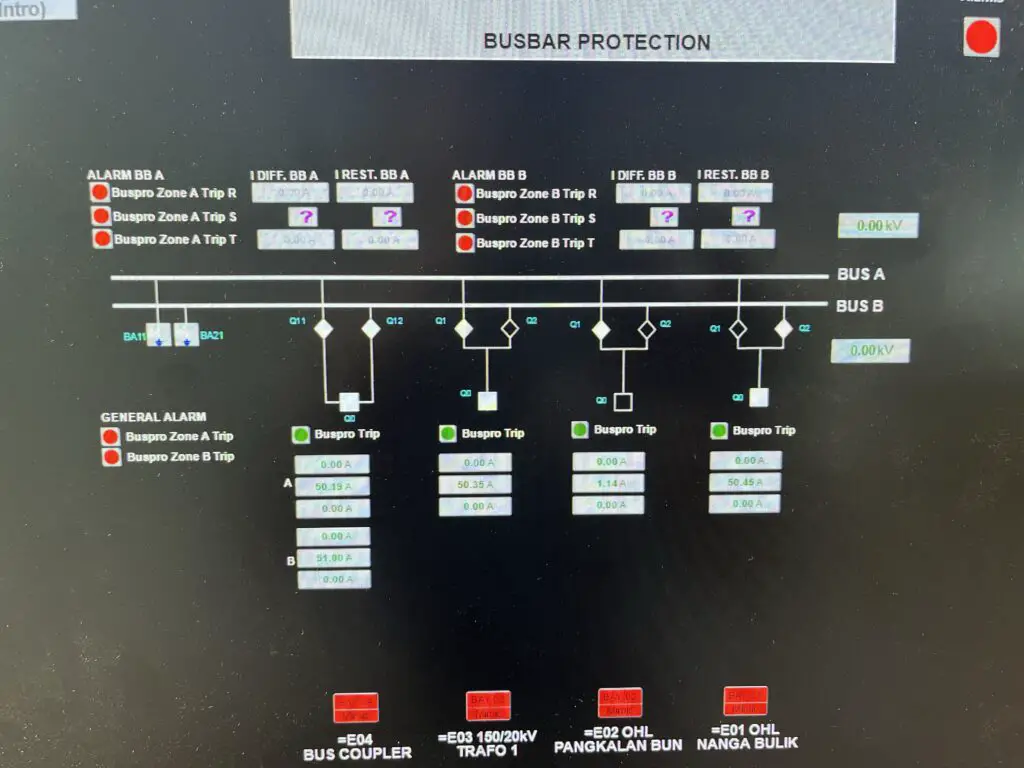
Driving Sustainability: A Deep Dive into Energy Management, In a world grappling with escalating climate change and depleting resources, the trajectory to sustainability hinges upon one critical element – energy management. As the backbone of global growth and development, energy and the way we manage it, form the crux of the sustainability discourse. Yet, the intricate interplay between sustainability and energy management remains largely elusive to many. This article endeavors to unravel this profound correlation by exploring the crucial role of energy management in driving sustainability, elucidating on the unique aspects of energy management, and elucidating on implementing sustainable energy management practices from both macro and micro perspectives.
Read Also: Understanding the Challenges in Energy Management Systems
Driving Sustainability: A Deep Dive into Energy Management
Understanding Energy Management
Energy management refers to the strategic oversight of energy usage to reduce unnecessary energy consumption and increase efficiency. It is a systematic approach that incorporates energy-efficient practices into homes, businesses, and utilities. Effective energy management strategies can include upgrading older equipment to more energy-efficient models, utilizing renewable energy sources, and adopting practices that help reduce energy waste.
Relevance of Energy Management in Sustainability
The relevance of energy management in driving sustainability is profound. Energy usage and production constitute a significant portion of greenhouse gas emissions contributing to global warming. By managing energy resources wisely and making efforts to reduce energy emissions, we can immensely contribute to sustainability. Therefore, energy management seeks to reconcile our need for energy for various activities with the imperative to reduce our negative impacts on the environment.
Global Energy Crisis and the Need for Sustainable Energy Practices

The energy crisis, characterized by diminishing fossil fuel resources and growing energy demand, has brought the need for sustainable energy practices to the fore. Energy usage continues to increase yearly, primarily driven by economic and population growth. In the face of declining petroleum resources, rising costs of energy, and environmental concerns, the pressing need to transition to sustainable energy practices has become increasingly discernible.
Energy Management as a Solution

Energy management serves as an effective solution to this global predicament. By reducing our dependence on fossil fuels and prioritizing renewable sources of energy, we can move towards a more sustainable future. Energy management can encourage the widespread use of wind, solar, and other renewable energy types. Moreover, it can also facilitate energy audits to identify inefficiencies and find ways to conserve energy.
Implementation of Energy Management Practices
The implementation of energy management practices in various sectors of society, from individual households to businesses and government operations, is pivotal to achieving sustainability. Potential actions could range from turning off lights when not in use, to comprehensive practices like enforcing energy-efficient building codes and standards and creating incentives for renewable energy use. These practices could significantly lower energy demand, contributing to reduced pollution and greenhouse gas emissions.
Enhancing Efficiency and Safety: The Power of HMI Software
The Significant Role of Proactive Energy Management
A proactive strategy in energy management, entailing the careful regulation of energy usage and a focus on energy efficiency, can yield substantial economic and environmental benefits. This approach can help curtail energy costs while simultaneously reducing the environmental impact related to energy production and usage. Moreover, it may prompt progress in the development of energy-saving technologies and renewable energy models.
Different Aspects of Energy Management
The Core Value of Energy Conservation in Energy Management
Energy conservation is a foundational aspect within the vast arena of energy management. Essentially, this ideology believes in reaping both environmental and economic benefits by reducing energy usage. Energy conservation aims to eliminate unnecessary wastage by fine-tuning the utilization of energy. This can be attained by implementing various strategies like upgrading or replacing old, energy-intensive appliances or infrastructures with more efficient ones. Measures like insulating homes, using smart thermostats, replacing traditional light bulbs with their energy-efficient counterparts, and installing low-flow showerheads embody the concept of energy conservation.
Understanding Substation Automation & IoT Concepts: A Complete guide for beginner
Energy Efficiency: A Key to Sustainability
Energy efficiency, another critical aspect of energy management, refers to using less energy to perform the same task. Industry incentives, government regulations, and continuous technological innovations have resulted in a host of energy-efficient alternatives across the board — from home appliances to industrial machinery. Energy efficiency brings down energy demand, thus reducing reliance on fossil fuels and associated greenhouse gas emissions. In addition, energy-efficient businesses and households can enjoy significant cost savings over time, enhancing both sustainability and economic resilience.
Energy Production and its Role in Sustainability
Energy production plays an essential role in the sustainability paradigm. The methods and sources of energy production significantly impact the environment. Traditional energy production methods primarily rely on fossil fuels, such as coal, oil, and gas, which contribute to pollution and climate change. However, a shift towards renewable energy sources such as wind, solar, and hydroelectric power can significantly decrease environmental impact, reinforcing sustainability.
The adoption of such alternative energy sources, also known as green energy, has been growing globally. These energy sources do not deplete natural resources and give off fewer emissions compared to traditional energy sources. As a part of energy management, sustainable energy production can help in meeting current energy needs while preserving resources for future generations.
Renewable Energy Sources: The Future of Energy Management

Renewable energy sources are a key player in sustainable energy management. These include solar, wind, geothermal, tidal, and biomass energy. These sources are inherently replenishable, meaning they are in continuous supply and will not run out over time.
Using renewable energy sources helps reduce greenhouse gas emissions since they produce little to no global warming emissions during operation. Moreover, widespread adoption of these energy sources can lead to significant environmental benefits, including cleaner air and water.
Read Also: What is a Remote Terminal Unit? A Basic Guide
However, the utilization of renewable energy involves comprehensive planning and management. The intermittency of renewables, particularly wind and solar energy, brings challenges to energy supply reliability. Energy storage solutions, such as batteries, are essential in addressing these challenges. Grid management could also involve a mix of different renewable sources, supplemented by more traditional energy sources when needed.
In conclusion, energy conservation, efficiency, and production play an integral role in creating sustainable energy management practices, which are integral to a sustainable future. As technology advances and the importance of sustainability becomes more recognized, energy management can help facilitate the transition to a more ecologically responsible future.
Implementing Sustainable Energy Management Practices
Getting to Know Sustainable Energy Management Practices
Sustainable energy management utilizes renewable sources, energy-efficient technology, and conservation methods to promote ecological responsibility and combat climate change. These strategies and measures are implemented on both a large scale (macro) and a small scale (micro).
At the macro level, government regulations and policies promote energy efficiency and reduce reliance on nonrenewable energy sources. This can involve the implementation of strict emission standards, establishing renewable energy goals, and offering financial incentives to encourage the use of energy-efficient technologies and practices. An example of this would be the Clean Power Plan in the United States, which is designed to minimize greenhouse gas emissions from power plants, or the Renewable Energy Directive in the European Union, which sets specific goals for renewable energy use.
Moreover, most countries are now in agreement with international protocols that aim to minimize greenhouse gas emissions, including the Paris Agreement, a global commitment to restrict global warming to a maximum of 2 degrees Celsius above pre-industrial levels.
Household Sustainable Energy Management Practices

On a micro level, sustainable energy management practices can be adopted by households and individuals to reduce energy consumption and promote sustainability. These can range from simple changes in behavior to investing in energy-efficient appliances and systems.
For instance, households can adopt energy-saving strategies such as turning off lights and electronics when not in use, using energy-efficient lighting, and adjusting thermostat settings to reduce energy usage during periods of non-occupancy.
Investing in energy-efficient appliances like refrigerators, washing machines, and dishwashers can also result in significant energy savings over time. Energy-efficient appliances typically consume less electricity and water, reducing both energy costs and environmental impact.
Households can also invest in renewable energy technologies such as solar panels and wind turbines to generate electricity. This not only reduces reliance on non-renewable energy sources but can also lead to cost savings in the long run.
The Role of Individuals in Promoting Sustainability through Energy Management
Individuals play a crucial role in promoting sustainability through better energy management. By adopting sustainable energy management practices, individuals can significantly reduce their carbon footprint and contribute to environmental conservation.
Education and awareness are key in driving this change. Greater awareness of the environmental impacts of energy use and understanding of sustainable energy management practices can motivate individuals to change their energy consumption patterns.
Adopting sustainable energy management practices is not just beneficial to the environment; it can also result in significant economic benefits. Energy-efficient appliances and systems tend to have lower operating costs and longer lifespans, leading to cost savings over time. Moreover, government incentives for energy-efficient technologies can further reduce the costs associated with these investments.
In conclusion, both macro and micro-level sustainable energy management practices are crucial for driving sustainability. While government policies provide the framework for change, the actions of individuals and households are what truly drive this change forward. Through small, daily changes in energy consumption patterns, individuals can make a significant impact on the environment and contribute to a more sustainable future.

Indeed, energy management, in all its complexity, holds the key to unlocking a sustainable future. As we navigate the currents of the global energy crisis, energy conservation, efficiency, and production emerge as vital lifelines. By empowering individuals with knowledge and encouraging the adoption of sustainable energy practices at all levels, we can catalyze profound changes and usher in a new era of sustainability. Furthermore, it is not just the responsibility of governments and large corporations, but every individual has a part to play. Let this be an earnest appeal for collective action, as we strive to drive the sustainability ethos in our energy consumption patterns, for a better future, for a sustainable world.

You must be logged in to post a comment.